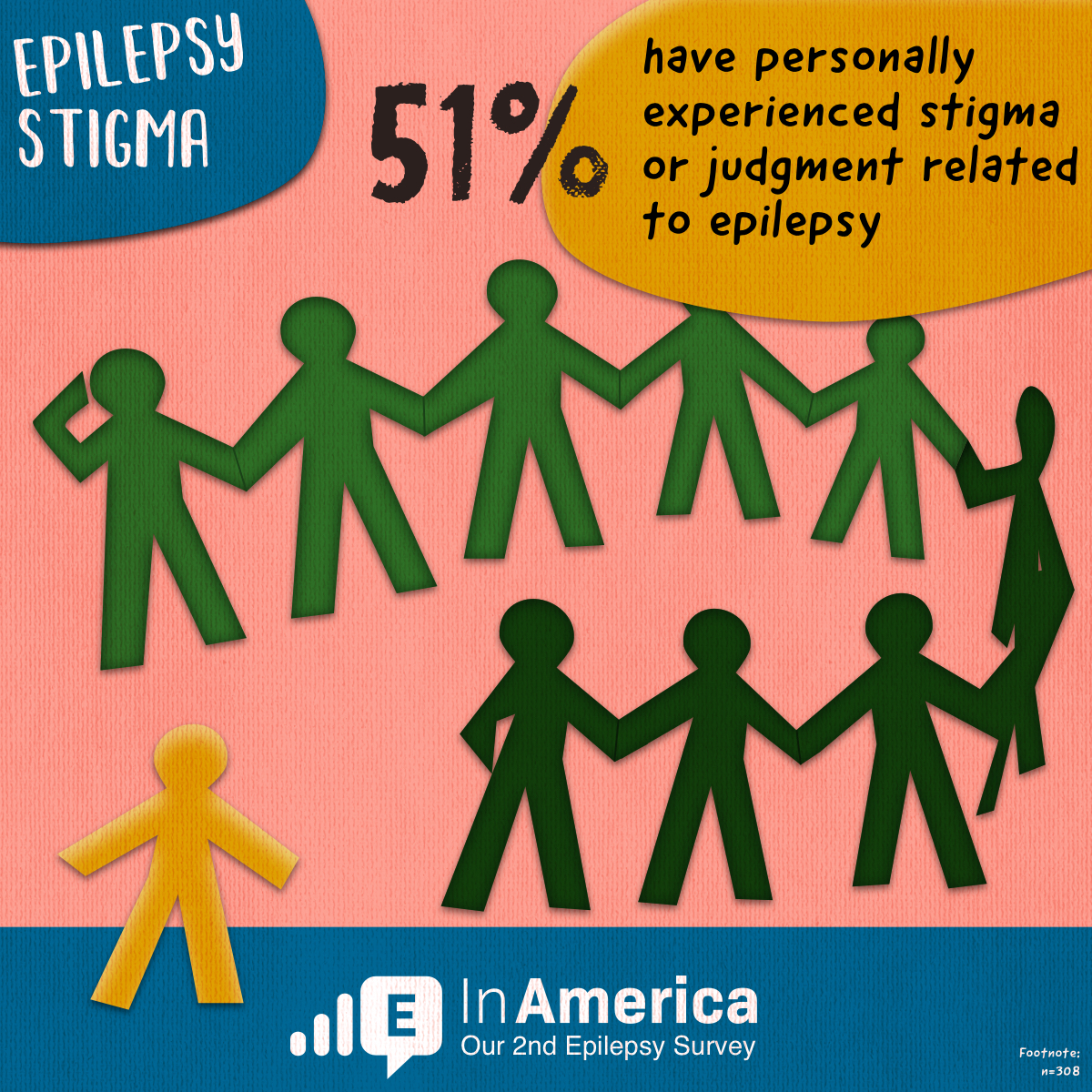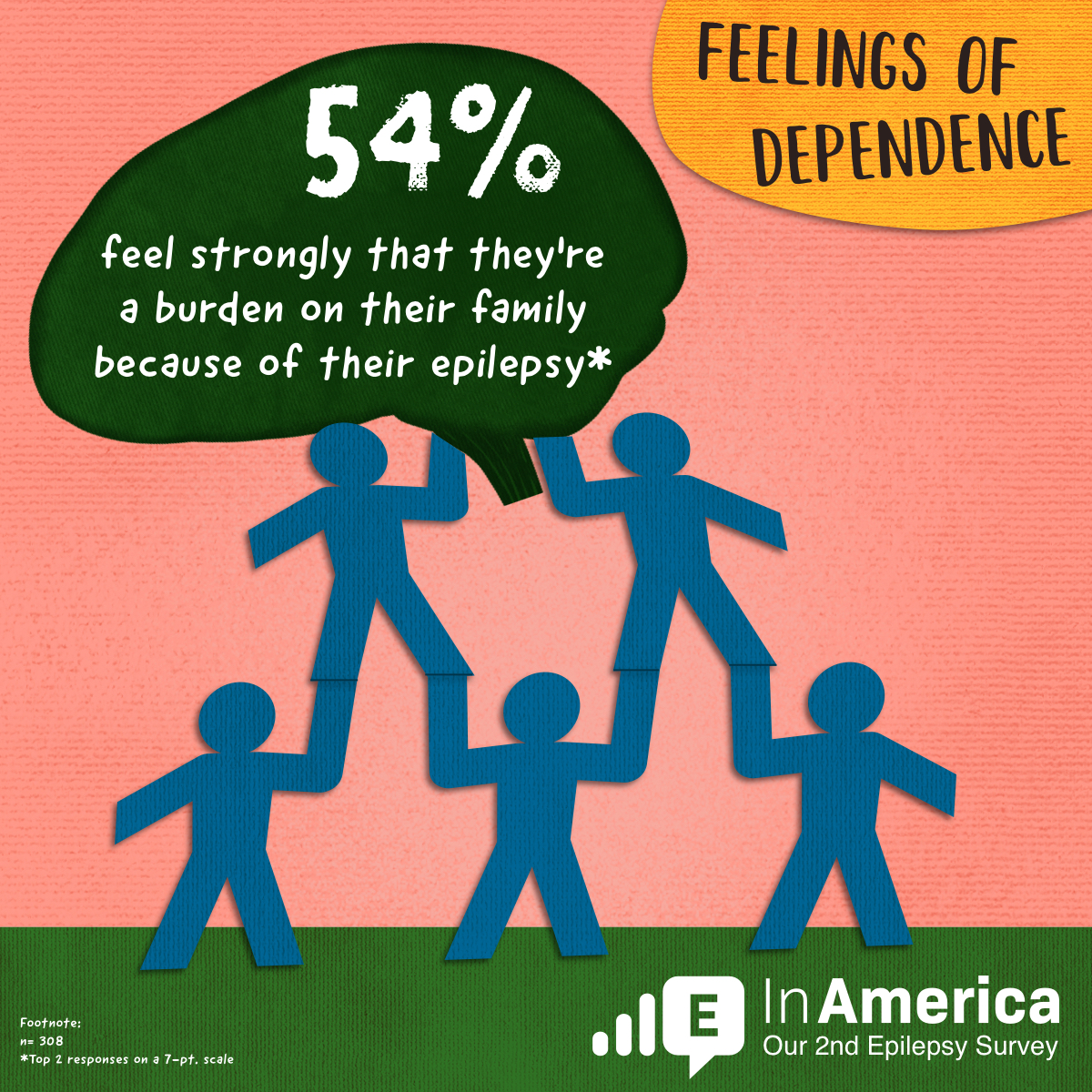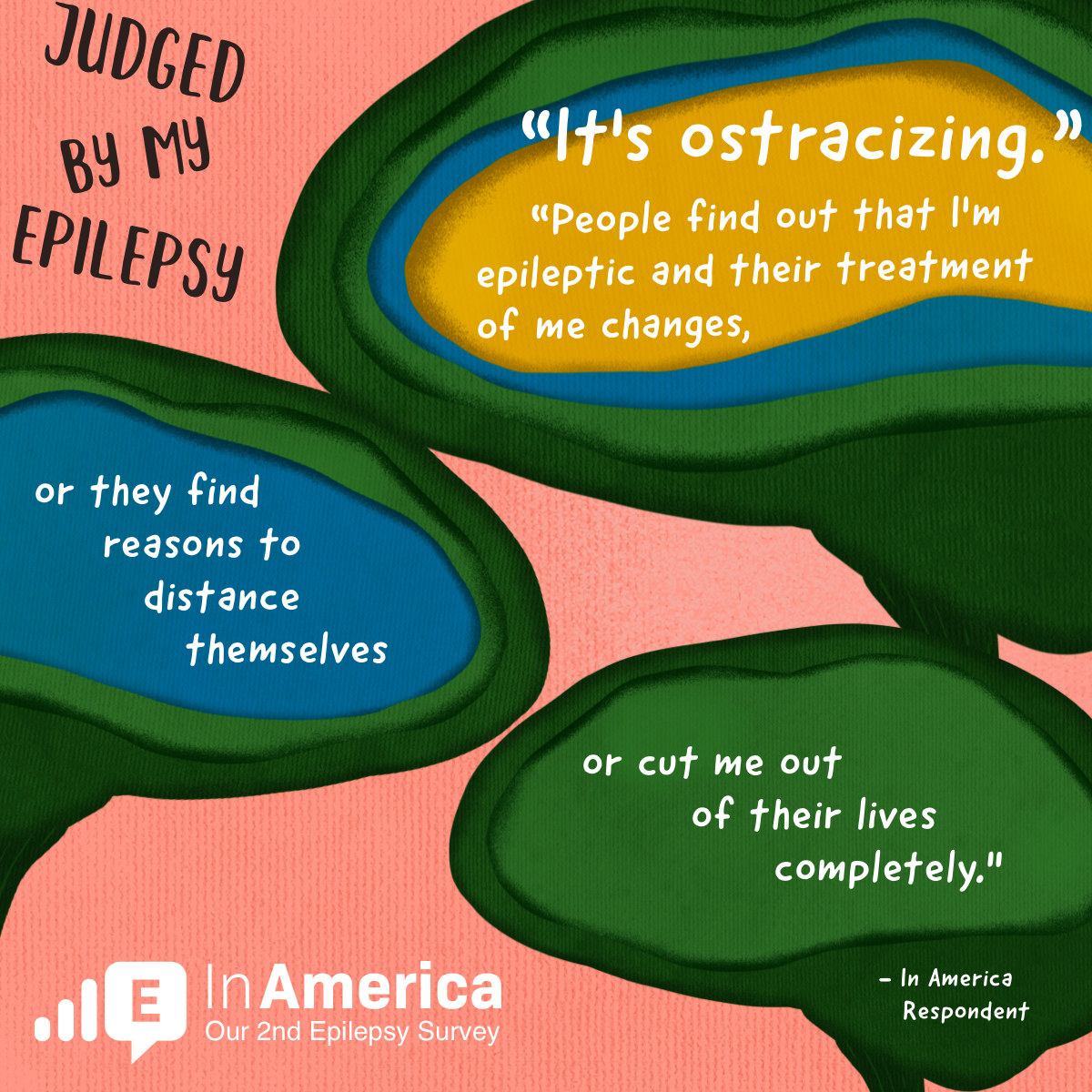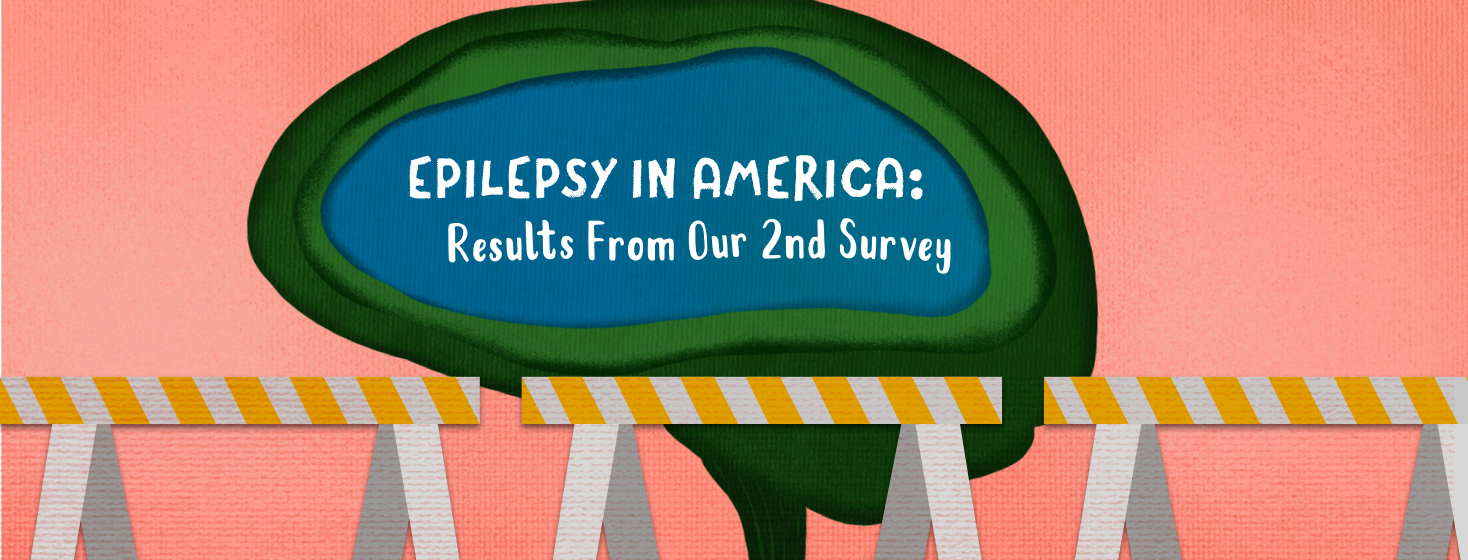The Barriers of Epilepsy
Epilepsy can create barriers in life's daily activities – school, work, driving. But it also can create barriers in more "invisible" ways: in social interactions and dynamics. In the way people react when you tell them, "I have epilepsy."
These barriers can come with loss. Loss of a license. Loss of a job. Loss of opportunities. Loss of relationships. Loss of control.
To learn more from those living with epilepsy, we conducted our 2022 Epilepsy In America Survey. A total of 308 people with epilepsy completed the survey and shared their experiences.
School and work barriers with epilepsy
From growing up as a child with epilepsy and facing bullying at school, to navigating adulthood and facing discrimination at work – over and over again, respondents shared personal stories of stigma, bias, and unfair treatment.
Some respondents shared about growing up with epilepsy:
- "When I was first diagnosed, a kid was told I was contagious and spread the word."
- "I was frustrated and upset because it made me feel different from my peers. I couldn't drive like my friends for a long time. It made me reliant on others, and it took a long time to find medications that worked and didn't have severe side effects. It shaped a lot of my life."
- "I've been discriminated, judged, bullied, throughout school, especially since I can't drive, job offers have said no multiple times…"
Job loss and discrimination at work were also repeatedly included in responses. From respondents:
- "It's hard to find a job, because most employers don't want to hire you because you might have a seizure on the clock."
- "Jobs always hold it against me."
- "I have been fired from many jobs because I have epilepsy."

A loss of independence
Epilepsy's impact on daily functions can be enormous. Seizures (or the threat of them) can place limitations on things others may take for granted: driving a car, going to work, being independent. With these limitations can come feelings of guilt and dependence on others. As one respondent shared, "I hate being dependent on others but am scared also."
Not being able to drive or the loss of a license was mentioned by several respondents:
- "It has also been a struggle not been able to do certain things and feeling like I am being held back from my independence of adulthood…for example, being able to drive a vehicle."
- "It would be great if insurance could pay for transportation to and from school and jobs…I was living in a very rural area and trying to get my masters. The nearest bus stop for public transit was a 20-minute car ride away."
- "The diagnosis caused a lot of stress due to loss of driving privileges and overall uncertainty of how my life would be affected moving forward."

Social barriers: people don't understand and don't want to
Beyond barriers felt in daily activities like school and work, perhaps even more pervasive is the barriers put up by people. Although largely "invisible," it's in these small moments, interactions, and reactions when people with epilepsy feel judged, misunderstood, and dismissed.
And when it came to loss, it wasn't just about jobs and driver's licenses. Respondents also shared about their loss of relationships:
- "After having a grand mal seizure in class no one wanted to be around me. They didn't want the responsibility, I guess, of being around an epileptic during a seizure.…Once someone finds out I have epilepsy (Doctor's offices, schools, work), the environment begins to feel awkward."
- "Sometimes people get scared after seeing one [a seizure] and distance themselves. It hurts because you have a friendship, so you thought, and it is just gone. Others do not want to go places with you in case you have one. It is awful."
- "Most of the stigma I have faced when it comes to my epilepsy has been in personal relationships. People... men have thought there was something wrong/broken with me."
- "My seizures do not respond to medication – that's hard. The impact epilepsy had on my life prior to diagnosis, that chaos, that was hard. But perhaps just as difficult and just as relevant, it's not the epilepsy itself that is most damaging. It is encountering ignorance, stigma, bias that are easily just as damaging, just as negative, just as hard. Epilepsy includes some innate barriers or limitations, things I need to be aware of, things I need to avoid, things I can no longer do, things that I cannot really influence or change. But it also includes social barriers, and I can influence those, but only if people listen. And people don't seem to be listening."
About 57% of respondents strongly agreed that those outside the epilepsy community don't understand what they go through. And 40% strongly agreed epilepsy has negatively impacted their social life and friendships.

The 2nd Epilepsy In America Survey was conducted online from April 2022 through May 2022. The survey was completed by 308 people.

Join the conversation